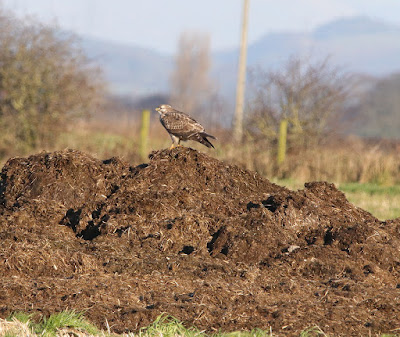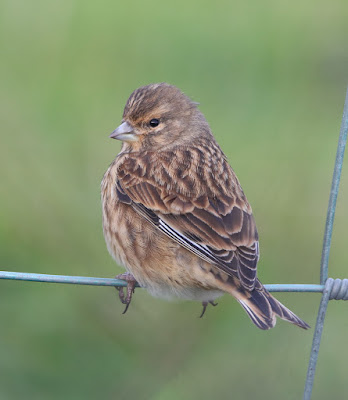There’s ringing news down the page but first some information not unconnected from the voluntary work that bird ringers undertake.
According to a new study, if given funding and support from similar or future new schemes, British farmers have the potential to partially reverse the declines of Linnets and other farmland birds over the past 40 years - Birdguides.
“New research funded by Natural England and DEFRA used six years of survey data to track changes in the abundance of birds on farms. The study involved over 60 farms under Higher Level Stewardship (HLS) agreements in three English regions between 2008 and 2014, and revealed that 12 of the 17 priority farmland bird species showed a positive change in abundance, going against the 56 per cent decline in the number of farmland birds nationally since 1970.
The Farmland Bird Index, one of our most important measures of biodiversity, increased by between 31 per cent and 97 per cent in different regions under HLS during 2008-2014. The average response of 17 priority bird species to HLS management was an increase in abundance of 163 per cent; bird numbers more than doubled.
Results from farmers and land managers working on HLS agri-environment schemes were compared with farms in the UK’s wider farmed landscape.
Results show farmers have the potential to deliver large and rapid population increases in a number of struggling farmland birds such as Skylark, Starling and Linnet if they are given the funding and support to manage their land in a wildlife-friendly way. This new information comes as the UK government is considering how to invest in a better agriculture system post-EU membership that works for nature, rewards farmers and benefits everyone around the country.”
Skylark
“UK Government Environment Minister Michael Gove said: “Our farmers are the original ‘friends of the earth’ and these results clearly demonstrate the vital role they play in protecting our wildlife and boosting biodiversity. These results show that with the right management and more targeted support for farmers, we can reverse the decline in numbers of our birds.”
Dr Will Peach, RSPB head of research delivery section said: “The UK has experienced a massive loss of farmland wildlife since the 1970s and DEFRA’s Wild Bird Indicators published only last month shows this loss has continued during the last five years. Our latest study shows that when farmers are supported to adopt wildlife-friendly approaches, then bird life will rapidly bounce back.
Many farmers are doing great things for wildlife, and without their efforts the countryside would undoubtedly be in a much worse position. We have the knowledge and the tools to reverse farmland bird declines. What we need now is the political will to implement them more widely.”
Starling
Meanwhile, bird ringers have an important role to play in collecting data, even though our own catches of Linnets during the latter half of wet and windy 2017 have been poor at two ringing sites, both areas of farmland under Higher Level Stewardship (HLS) agreements.
There was a slight frost this morning for a meet up at Gulf Lane, our first visit of 2018 to Project Linnet. We started the morning with a respectable total of 213 new Linnets from August to December 2017 and 423 new Linnets for year 2017.
The winter has been mild with the number of frosty nights counted on one hand but I am buoyed up by the number of Linnets at ringing sites at Cockerham and Glasson Dock, anywhere between 150 and 350 throughout many visits.
Linnets
The problem at the moment is catching the Linnets, with today no exception. Despite a count of 160 birds this morning we managed to catch just two. There is still plenty of natural food around in the field of wild birdseed crop with the Linnets reluctant to use the food we leave as backup. But we don't give up easily so it’s back to the drawing board with our theories and proposals for next time.
Linnet
Stay tuned, there’s more birding, ringing and pictures soon.
Linking today with Anni's Birding and Eileen's Blogspot.
Linking today with Anni's Birding and Eileen's Blogspot.




































































